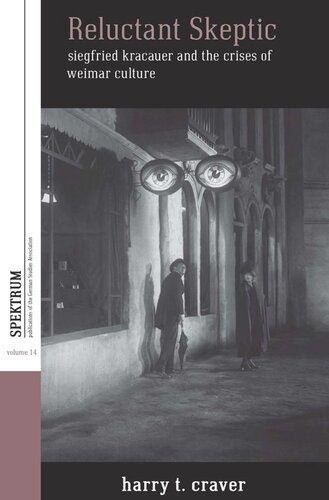

Most ebook files are in PDF format, so you can easily read them using various software such as Foxit Reader or directly on the Google Chrome browser.
Some ebook files are released by publishers in other formats such as .awz, .mobi, .epub, .fb2, etc. You may need to install specific software to read these formats on mobile/PC, such as Calibre.
Please read the tutorial at this link: https://ebookbell.com/faq
We offer FREE conversion to the popular formats you request; however, this may take some time. Therefore, right after payment, please email us, and we will try to provide the service as quickly as possible.
For some exceptional file formats or broken links (if any), please refrain from opening any disputes. Instead, email us first, and we will try to assist within a maximum of 6 hours.
EbookBell Team

4.0
26 reviewsThe journalist and critic Siegfried Kracauer is best remembered today for his investigations of film and other popular media, and for his seminal influence on Frankfurt School thinkers like Theodor Adorno. Less well known is his earlier work, which offered a seismographic reading of cultural fault lines in Weimar-era Germany, with an eye to the confrontation between religious revival and secular modernity. In this discerning study, historian Harry T. Craver reconstructs and richly contextualizes Kracauer’s early output, showing how he embodied the contradictions of modernity and identified the quasi-theological impulses underlying the cultural ferment of the 1920s.